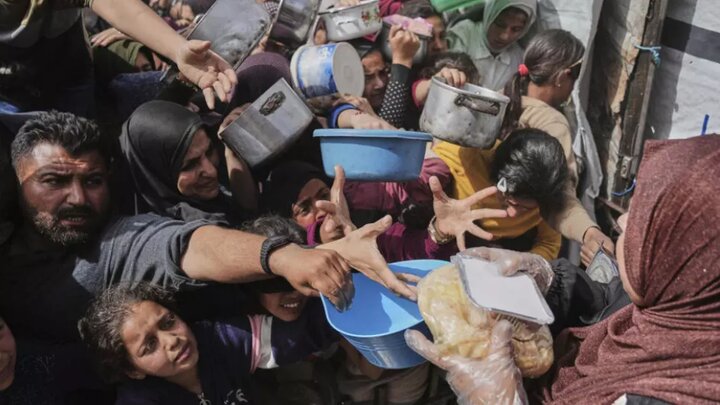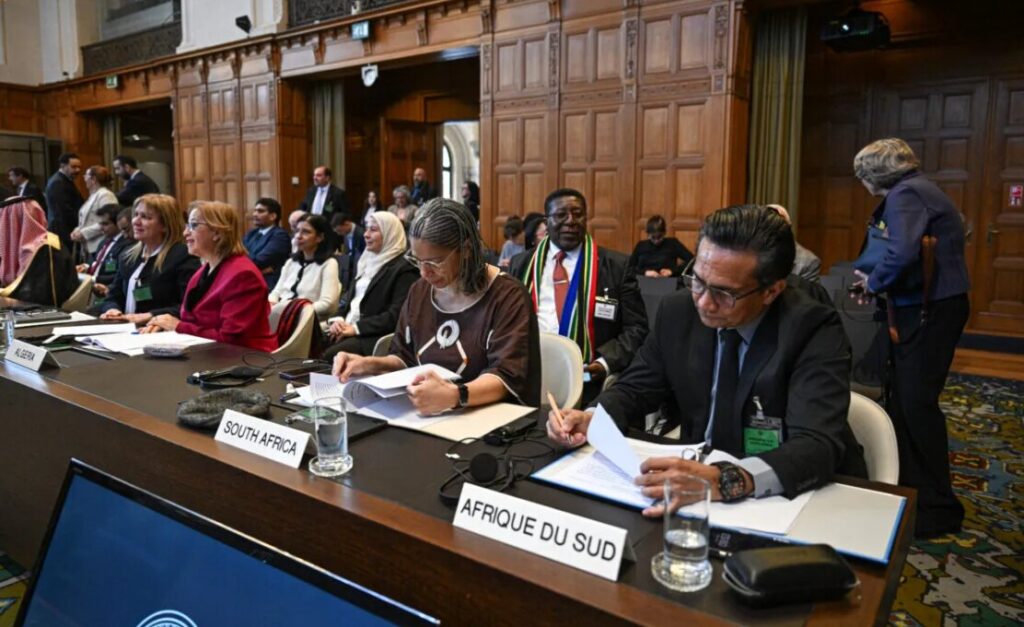TEHRAN – The International Court of Justice (ICJ) lawsuit in The Hague on April 28th marked a key period of long-standing humanitarian and legal challenges posed by Israel’s liability against Palestinians, particularly access to humanitarian assistance in Gaza and the West Bank.
These legal procedures, brought about by the resolution of the United Nations General Assembly, seek to establish Israel’s legal obligations under international law against the backdrop of significant blockades and aggravating humanitarian circumstances in occupied Palestinian territory.
Background and legal context
At the end of 2024, the ICJ was requested to provide an advisory opinion on Israel’s obligation to secure and promote humanitarian assistance to Palestinians.
This was particularly relevant to the United Nations Relief and Labor Agency (UNRWA) for Palestinian Refugees in the Near East.
The request accused Israel of infiltrating Hamas following its decision in January 2025 to cut ties with UNRWA. Since March 2, 2025, Israel has imposed a near-lockdown on Gaza, shutting down all food, fuel and medical supplies, claiming it is a security reason and a way to put pressure on Hamas to release hostages.
The lockdown led to a humanitarian crisis in Gaza. The World Food Program (WFP) says it will run out of food in Gaza and expose millions of Palestinians to starve, and it has not received any important medical supplies either. Humanitarian organisations, including doctors without borders, are “large graves” of Gaza, warning that aid blocs are putting civilian lives at risk.
The ICJ has intervened in the matter after previous decisions, including the January 2024 order, directing Israel to “prevent Gaza genocide by all means,” and the June 2024 advisory opinion stated that Israel’s control over Palestinian territory is illegal.

Israeli boycott and international debate
The hearing spans five days, with four international institutions including representatives from 40 states and major powers such as the US, China, France, Russia, and regional institutions such as the Arab Federation and Islamic cooperation, presenting discussions in front of 15 judges.
However, Israel boycotted oral cases, filed only written statements and labeled them as “circus” and “politicized spectacles” aimed at outlawing it in the hearing.
Israeli officials have accused the UNRWA of “became invading Hamas terrorists,” accusing the UN of failing to eradicate extremists from its class, and claiming that more than 1,400 UNRWA employees in Gaza have extremist ties.
Palestinian representatives, particularly Ammar Hijaj, head of Palestinian missions to the Netherlands, have accused Israel of using humanitarian aid as a “weapon of war,” and have deliberately hungered, displaced and thwarted aid organizations.
Hijaji urged the ICJ to recognize the tragic reality of “starving people” and the deliberate lockdown that has left 2.3 million Gaza residents with essential supplies since March.
Elinor Hamars Skjold, the United Nations legal counsel, emphasized Israel’s obligations as an occupation right to grant, promote humanitarian assistance and protect UN projects, warning that blocking UNRWA violates the inevitable rights of Palestinians under international law.
This is part of a series of legal analysis of Israel’s actions in occupied Palestinian territory. In the second case raised by South Africa, the ICJ ordered interim measures against Israel, allowing the supply of critical services and humanitarian assistance, raising concerns about a potential violation of the Genocide Convention.
Human Rights Watch also says Israel continues to block entry into Gaza in life-saving assistance, contrary to the ICJ directive. The agency said delivery has improved slightly, but delivery remains insufficient to meet the overwhelming needs of the population.
ICJ Opinions and Global Aid Policy
The ICJ procedural opinions will soon be issued, and although they are not final decisions in a strict sense, they are extremely influential in international law and politics. This includes whether the Israeli embargo and the ban on UNRWA are violations of international humanitarian law of the Fourth Geneva Convention.
Under this, the humanitarian needs of the population under occupation are the responsibility of the government. Additionally, the court will investigate the UN Charter and customary international law, making it difficult for Israel to provide humanitarian aid.
The hearings take place at a time when global politics is quite tense. The United States voted against a UN resolution seeking an advisory opinion, but is now set to debate in favor of Israel. Meanwhile, countries such as Germany, France and the UK have made humanitarian access to Gaza easier.
Israel has not attended the hearing and is criticising the UN and UNRWA, showing how distrust they are and how they view these court proceedings as part of a larger attack on their legitimacy.
For Palestinian leaders and their international advocates, the ICJ hearing is important to hold Israel accountable and promote global action to address humanitarian issues.
Court opinions could shape future international law, humanitarian assistance efforts, public opinion, and perhaps influence Israel’s status in the world and its relationship with key allies.

